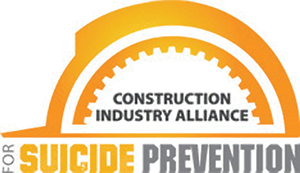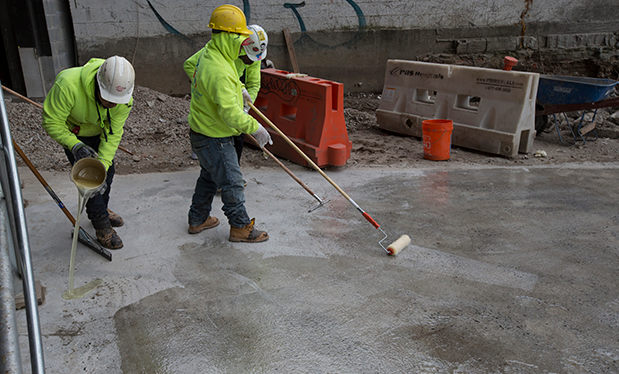NRCA launches job bank to help members find workers

|
NRCA has launched a new online job bank at careersinroofing.com to help connect members with prospective workers. Employers can use the free tool to fill a variety of positions.
After creating a unique account on the website, a member can link directly to his or her company’s website or upload PDFs, as well as provide brief descriptions of available positions. Available jobs will be posted for 30 days.
Partnerships will provide skills training for young people The Home Depot Foundation recently announced two strategic partnerships intended to help fill and diversify trades industries by providing skills training for young people. Together with its trades training nonprofit partner, Home Builders Institute, The Home Depot Foundation partnered with 100 Black Men of America Inc. to increase skilled trades training and career opportunities for Black youth. This fall, the three organizations will launch a pilot trades training program serving marginalized communities in Atlanta, Philadelphia and San Francisco. The program will offer skill building workshops, work experience, internship opportunities and industry-recognized PACT (Pre-Apprenticeship Certificate Training) certifications. The programs will help prepare Black youth for meaningful careers and will be facilitated through 100 Black Men of America’s existing afterschool programs. Data from the U.S. Bureau of Labor Statistics from 2020 shows skilled labor industries are dominated by white males while Black people and women are disproportionately underrepresented. Black tradespeople represent only 6% of the construction, architecture and engineering workforces. Twenty-seven percent of architecture and engineering professionals and only 11% of construction workers are women. “The most important thing we will achieve through this partnership is to give young people a chance to work hard at work worth doing,” says Tadar Muhammad, Home Builders Institute’s senior vice president for strategic partnerships and development. “We know that when our students acquire marketable trade skills, we give them a shot at improving every element of their lives and the lives around them.” In addition, The Home Depot Foundation formed a strategic partnership with Girl Scouts of the USA to provide introductory training experience and career education for young women. The Home Depot Foundation and GSUSA will host the first-ever joint construction workshops for Cadette, Senior and Ambassador level Girl Scouts in grades 8-12. Launching in the fall, the pilot program will engage troops in Atlanta, Denver and Houston, providing hands-on experience with carpentry and other building construction trades. These skilled trades workshops will be led by female industry professionals and offer career guidance and additional education touchpoints for young women seeking trades training opportunities. “At Girl Scouts, we help girls discover who they want to be by introducing them to a wide variety of experiences to see what sparks their interest. From the very beginning, one of those experiences has been the skilled trades,” says Suzanne Harper, GSUSA’s senior director of national programs and partnerships. “We are thrilled to partner with The Home Depot Foundation to provide this innovative hands-on skilled trades experience that will allow girls to see themselves in these essential careers by connecting with role models to whom they can relate.” The Home Depot Foundation also will extend scholarship opportunities to select high school senior Girl Scouts as part of its new $250,000 Path to Pro scholarship program. The program grants financial assistance to eligible candidates for trade college or postsecondary programs. Additional information is available at myscholarship.app/home-depot-foundation. Median age of U.S. construction workers is 41 years old A National Association of Home Builders’ analysis of the most recent 2019 American Community Survey data shows the median age of construction workers is 41, underscoring the need for contractors to attract new workers, according to constructiondive.com. Maine has the oldest median age of construction workers at 47, followed by New Hampshire at 46 and West Virginia at 45. Construction workers in the central U.S. are younger than average, with about half of construction workers in North Dakota and Alaska under 36 and half of workers in Oklahoma and Utah under 38. By occupation, first-line supervisors of construction trades, extraction workers and construction managers had the oldest median age at 46. Helpers had the youngest median age at 30, followed by those who install solar photovoltaic systems with a median age of 33. But the high median age is not necessarily unique to the construction industry because overall the U.S. workforce is aging. “While there have been significant advances in technology, it’s still heavily reliant on actual workers to perform, to build projects, to do the work,” says Brian Turmail, vice president of public affairs and strategic initiatives at the Associated General Contractors of America. “And when you have so many people about to age out of the workforce, you want to make sure that you’re recruiting and bringing new people.” Turmail says during the past 30 to 40 years there has been a cultural push in the U.S. toward desk jobs and away from construction jobs as society placed more value on obtaining professional salaried careers and less value on career tracks such as construction. This continues to be an issue despite construction jobs offering good pay and not requiring workers to attend college. NRCA and NCCER release updated roofing curriculum NRCA recently partnered with the National Center for Construction Education & Research to produce the second edition of NCCER’s Roofing Level 1 curriculum. NRCA and NCCER’s partnership increases consumer confidence that certified roofing industry professionals have the knowledge and skills required to do their jobs well. Consisting of two levels, the NCCER Roofing curriculum helps roofing professionals prepare for NRCA ProCertification.® Through NRCA ProCertification, skilled roofing professionals who meet all requirements and pass a series of assessments can earn professional credentials for specific types of roof system installations. The NCCER Roofing Level 1 curriculum was updated with relevant information regarding steep- and low-slope roof systems, roof decks, roof insulation, rigging, sheet metal and substrates. Drawings also were updated, and two detailed modules teach relevant safety practices. Available in early 2022, the NCCER Roofing Level 2 curriculum will include training for more specific roof systems, including asphalt shingle, EPDM, metal and TPO roof system installations, among others. In addition to several NRCA staff experts, subject matter experts contributed to the development of the curriculum to ensure it meets or exceeds industry standards. Contributing to the effort were the following: Advanced Roofing Inc., Fort Lauderdale, Fla.; Deer Park Roofing Inc., Cincinnati; Don Kennedy Roofing Co. Inc., Nashville, Tenn.; Eagle Roofing Products, Rialto, Calif.; Florida Roofing and Sheet Metal Contractors Association Inc.; GAF, Parsippany, N.J.; Garlock-French Roofing Corp., Minneapolis; Mid-South Roof Systems, Forest Park, Ga.; Nations Roof, Mobile, Ala.; PDM Architects, Louisville, Ky.; The Arizona Roofer and Waterproofing Professionals; and West Roofing Systems Inc., LaGrange, Ohio. “Establishing roofing as a core NCCER curriculum will be beneficial to NRCA members who are experiencing workforce issues,” says Nick Sabino, president of Deer Park Roofing and chair of NRCA’s CTE/Workforce Development Committee. “Students in NCCER’s career and technical educational programs now will be introduced to a career path in residential and commercial roofing. Everyone at NRCA is excited the new curriculum will be in classrooms soon.” “This is like the dream team. Partnering NRCA’s world-class subject matter experts with NCCER’s skilled curriculum writers has resulted in a product that can change the future workforce of the roofing industry,” says Reid Ribble, NRCA’s CEO. “I am thrilled with the quality of this product and cannot wait for it to be deployed in schools and technical colleges everywhere.” The importance of prioritizing employee retention Employers across the U.S., including in the roofing industry, are struggling to find skilled workers. As a result, many companies are putting significant money and effort into attracting and hiring new workers, according to inc.com. However, efforts still must be made to focus on employee retention, which is especially crucial during times when skilled workers are scarce. The following reasons explain why employers may want to make employee retention a top priority. NRCA offers new Qualified Assessor directory on its website NRCA has launched a new Find a Qualified Assessor feature on its website, nrca.net, for roofing professionals looking to complete NRCA ProCertification.® Roofing professionals can enter search criteria, such as roof system type and state, to find an NRCA ProCertification® Qualified Assessor near them. NRCA ProCertification® Qualified Assessors serve as performance exam proctors for roofing professionals seeking installation certifications, evaluating and verifying candidates’ hands-on skills. The Find a Qualified Assessor feature is available at nrca.net/certifications/qualifiedassessors. Suicide-prevention alliance offers additional resources As part of its commitment to safety in the roofing industry, NRCA is a member of the Construction Industry Alliance for Suicide Prevention, a group of key industry organizations committed to promoting the safety and well-being of construction workers. Established by the Construction Financial Management Association in 2016, the Construction Industry Alliance for Suicide Prevention’s mission is “to provide and disseminate information, resources and training for suicide prevention and mental health promotion in construction with the goal of creating a zero-suicide industry.” Part of NRCA’s membership commitment involves periodically sharing these suicide-prevention resources. According to the Centers for Disease Control and Prevention, the suicide rate in construction occupations is nearly four times greater than the national average and five times greater than all other construction fatalities combined. The Construction Industry Alliance for Suicide Prevention offers many resources on its website, preventconstructionsuicide.com, including published articles; wallet cards, hard hat stickers and posters to display in the workplace; videos; toolbox talks; and information and tips regarding how to plan an educational session. The website also has free, anonymous screening tools to help workers identify potential mental health issues. Additional resources to assist employers and employees during the COVID-19 pandemic are available at preventconstructionsuicide.com/covid_19_resources.






